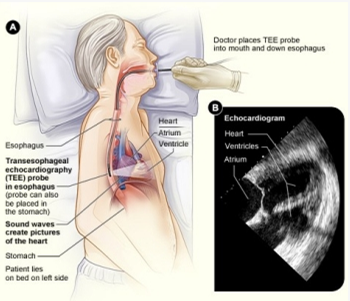The nurse is interviewing a client with a complex cardiac history. Which questions related to the client's history are most important to ask? Select all that apply.
Are you allergic to any medications or foods?
Do you have any children?
How did your mother die?
Have you had shortness of breath or weight gain?
How would you describe your symptoms?
Correct Answer : A,C,D,E
The questions related to the client's history that are most important to ask are:
How would you describe your symptoms?: This question is important to assess the client's current cardiac symptoms and determine the severity, duration, and nature of their symptoms. It helps the nurse to evaluate the client's cardiac status and determine appropriate interventions.
Are you allergic to any medications or foods?: This question is crucial to identify any potential allergies that could impact the client's cardiac care. It helps the nurse ensure that medications and interventions are safe for the client and prevent any adverse reactions.
How did your mother die?:This question is important to gather information about the client's family history of cardiac diseases and potential risk factors. Understanding the family history helps the nurse assess the client's genetic predisposition to cardiac conditions and plan appropriate interventions and screenings.
Have you had shortness of breath or weight gain? : This question is important to assess for symptoms of heart failure or fluid retention. Shortness of breath and weight gain can indicate fluid accumulation, which is a common symptom in cardiac conditions. It helps the nurse evaluate the client's cardiac function and determine the need for further interventions or medication adjustments.
Let's review the other options and explain why they are not the most important questions to ask:
Do you have any children?: While family history is important, specifically asking about children is not as relevant to the client's current cardiac condition. The focus should be on the client's own symptoms, medical history, and family history of cardiac diseases.
Nursing Test Bank
Naxlex Comprehensive Predictor Exams
Related Questions
Correct Answer is D
Explanation
Transesophageal echocardiography is a diagnostic procedure that involves inserting a probe into the esophagus to obtain detailed images of the heart. In some cases, an access line may be initiated in the femoral artery to monitor blood pressure during the procedure and administer medications if needed. Informing the client about this aspect of the procedure helps ensure that they are aware of what to expect and can provide informed consent.

Let's go through the other options and explain why they are not the most appropriate actions:
Instruct the client to drink 1 L of water before the test: This action is not necessary for transesophageal echocardiography. Drinking water before the test is typically done for certain abdominal or pelvic ultrasound examinations to provide better visualization. However, for TEE, the probe is inserted into the esophagus, and drinking water is not required.
Administer intravenous (IV) benzodiazepines and opioids: The administration of intravenous benzodiazepines and opioids is not a routine part of preparing a client for TEE. The need for sedation or analgesia during the procedure would be determined based on the individual client's condition and level of discomfort.
Inform the client that the client will remain on bed rest following the procedure: While some post-procedure instructions may be given to the client, such as avoiding eating or drinking until the effects of sedation wear off, informing the client that they will remain on bed rest following the procedure is not a specific requirement for TEE. Post-procedure instructions can vary depending on the individual client's condition and the healthcare provider's recommendations.
Correct Answer is D
Explanation
Choice D: This question is crucial as it addresses the client's adherence to their prescribed medication regimen for managing high blood pressure. Consistent medication use is essential for controlling blood pressure and reducing the risk of complications associated with hypertension. The elevated blood pressure reading suggests that the current medication regimen may not be effectively controlling the client's blood pressure. By assessing medication adherence, the nurse can determine if non-adherence is contributing to the high blood pressure reading or if adjustments to the medication regimen are required.
"Have you recently taken any antihistamines?": Asking about recent antihistamine use is not directly relevant to the client's high blood pressure reading of 210/106 mm Hg. Antihistamines are medications primarily used to relieve allergy symptoms and do not typically have a significant impact on blood pressure levels.
"Have there been recent stressful events in your life?": While stress can contribute to temporary increases in blood pressure, asking about recent stressful events is not the most critical follow-up question in this situation. The client's blood pressure reading of 210/106 mm Hg indicates a severe elevation that requires immediate attention and management beyond stress reduction alone.
"Did you take any acetaminophen today?": Acetaminophen, also known as paracetamol, is a pain reliever and fever reducer. It does not typically have a significant effect on blood pressure. Therefore, asking about acetaminophen use is not the most relevant follow-up question for the client's high blood pressure reading.
Whether you are a student looking to ace your exams or a practicing nurse seeking to enhance your expertise , our nursing education contents will empower you with the confidence and competence to make a difference in the lives of patients and become a respected leader in the healthcare field.
Visit Naxlex, invest in your future and unlock endless possibilities with our unparalleled nursing education contents today
Report Wrong Answer on the Current Question
Do you disagree with the answer? If yes, what is your expected answer? Explain.
Kindly be descriptive with the issue you are facing.
